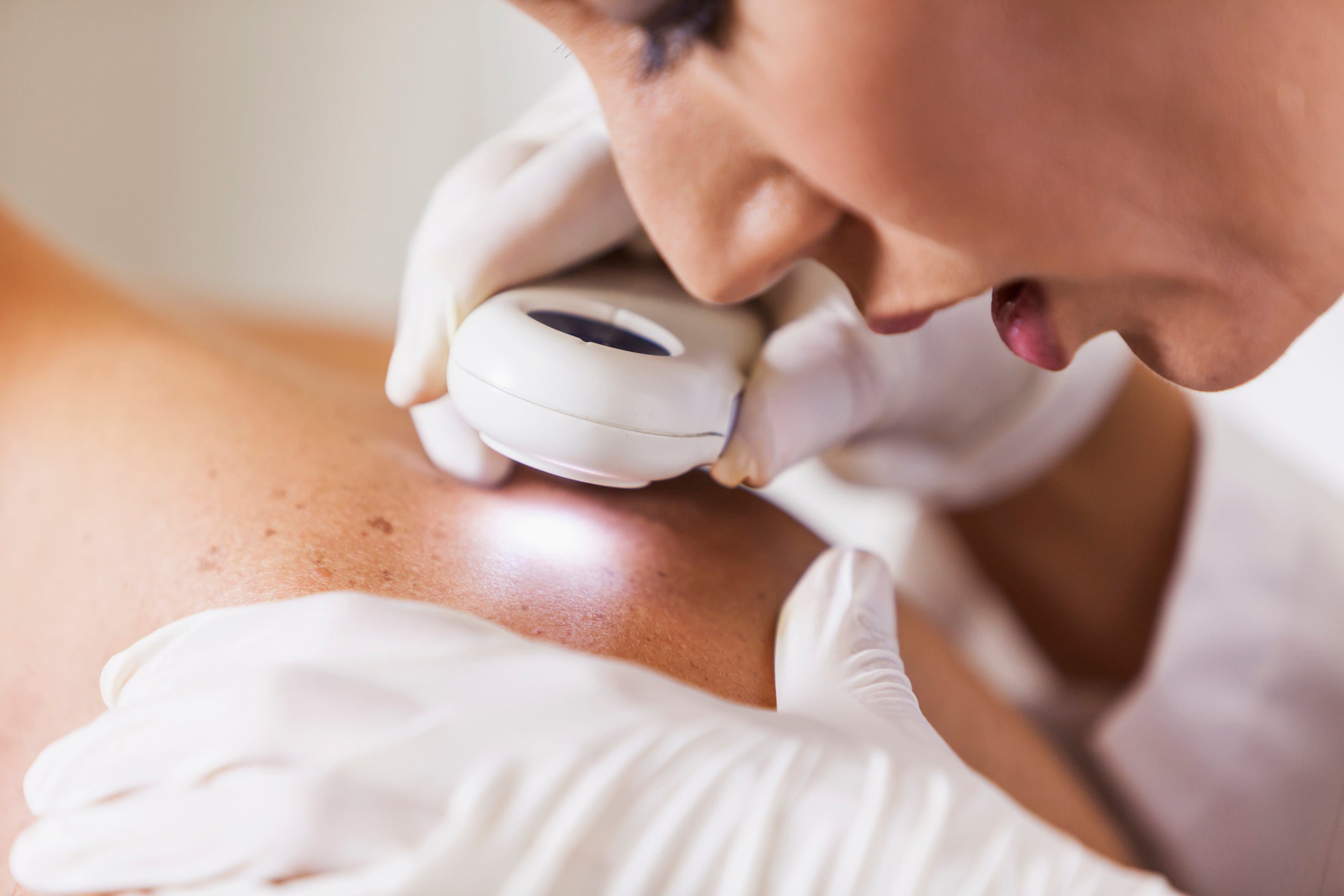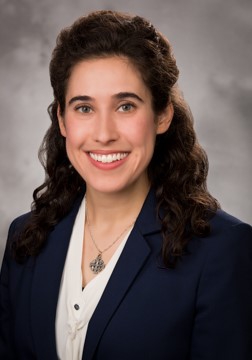Skin Cancer Screening Q&A
May 9, 2023
By: Beverly Moody
Categories: Cancer, Men's Health, Women's Health
Take some time to learn about why skin cancer screenings should be a regular part of your self-care routine. Skin cancer screenings can detect melanoma and other skin cancers early, when they’re easiest to treat. Katherine Fontichiaro, MD, FAAD, a board-certified dermatologist with Trinity Health Ann Arbor, shares insights into commonly asked questions about the importance of skin cancer screenings.
Q: Should I complete a self-evaluation for skin cancer?
Dr. Fontichiaro: Yes! Examining your skin can be a very helpful in identifying lesions (spots) of concern on the skin that may need further evaluation.
Q: What types of things should I look for when doing a self-screening?
Dr. Fontichiaro: It is important to monitor for any changing moles or lesions that stand out from the rest of the spots on the skin. Any non-healing scabs or sores, or lesions that are itching or bleeding, should also be evaluated. It is important to keep in mind that although sun exposure is a risk for skin cancer, it is possible for skin cancer to develop even in parts of the skin that may not have had significant sun exposure — so don’t forget to check those areas, too!
Q: How often should I complete a self-exam?
Dr. Fontichiaro: I generally recommend completing a skin self-exam monthly. Completing a monthly skin exam can help patients become more familiar with their own skin and how
their moles, birthmarks, and other spots on the skin normally appear. This can make it easier to detect any new, changing, or otherwise concerning lesions.
Q: Why is a Skin Cancer Screening by a professional important?
Dr. Fontichiaro: Some skin cancers may have subtle features and may be difficult to recognize during a skin self-exam. Additionally, some areas on the body can be difficult to self-monitor. Your dermatologist can help examine those areas, and in some cases, may use a tool called a dermatoscope to inspect certain lesions of concern more closely.
Q: What types of cancer are you looking for in a Skin Cancer Screening?
Dr. Fontichiaro: The three most common types of skin cancer are basal cell carcinoma, squamous cell carcinoma, and melanoma skin cancer. Basal cell and squamous cell skin cancer are sometimes referred to as “non-melanoma skin cancers,” to distinguish them from melanoma skin cancer. Although these are the most commonly found types of skin cancer, your doctor will be looking for all types of skin cancer during a skin cancer screening.
 Q: If you find skin cancer, can we do something about it?
Q: If you find skin cancer, can we do something about it?
Dr. Fontichiaro: Yes. If your doctor identifies a lesion of concern, they may recommend a procedure called a skin biopsy. This procedure is generally done in your dermatologist’s office; it involves numbing the area of concern and removing a small piece, or sample, from the skin. The sample is sent to a lab to be examined under a microscope by a pathology doctor. If the biopsy confirms skin cancer, your dermatologist can review treatment options based on your biopsy results. Skin cancers are often highly treatable, especially if detected early.
Schedule a skin cancer screening with a Trinity Health dermatologist near you, today.




